-
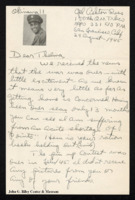
A letter and accompanying envelope from Ashton Ross, stationed in Okinawa, possibly with the 150th Quartermaster and Truck Company, to Thelma T. Gorham. In it, Ross discusses news and personal matters, including his reaction to the end of the war.
-
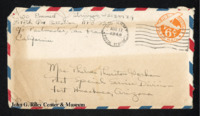
A letter and accompanying envelope from Emmet J. Stringer, stationed in Papua New Guinea with the 570th Quartermaster Battalion, to Thelma T. Gorham, discussing news and personal matters
-
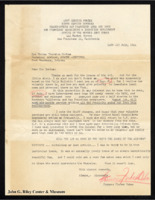
A letter from Frances Fisher Dubuc, apparently attached to the Womens Army Corps San Francisco Recruiting and Induction Detachment, to Thelma T. Gorham. In it, Dubuc thanks Gorham for her work as a technical advisor for the Apache-Sentinel based in Fort Huachuca, Arizona.
-
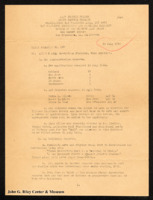
An Army Daily Bulletin compiled by Fay S. Chambers, Womens Army Corps First Lieutenant, addressed to all U.S. Army recruiting stations in the San Francisco Recruiting and Induction District, discussing recruitment for the WAC. Despite the fact the bulletin is aimed at the San Francisco recruitment district, the envelope is addressed to Thelma T. Gorham at Fort Huachuca, Arizona
-
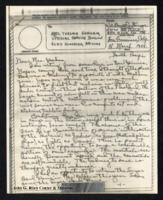
A V-mail letter from Emmet J. Stringer, of the 570th Quartermaster Battalion, at that point stationed in Papua New Guinea, to Thelma T. Gorham, who appears to have at that time been part of the Special Service Division stationed at Fort Hurchuca, Arizona. In it, Stringer discusses news and personal matters
-
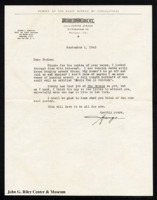
A letter and accompanying envelope from George S. Schuyler, Editor for the Pittsburgh Courier, to Thelma T. Gorham, discussing her writing
-
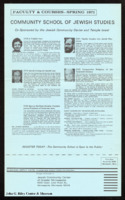
A list of courses offered by the Community School of Jewish Studies and the faculty teaching them for Spring 1971
-
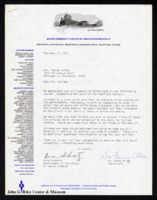
A letter and accompanying document from Anna Schwartz and Henry Allen, Coordinators for the Jewish Community Center of Greater Minneapolis, to Thelma T. Gorham, discussing a class Gorham had been invited to speak at
-
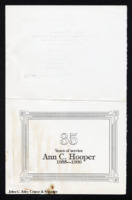
An invitation for a retirement banquet honoring Ann C. Hooper, professor in the FAMU Department of Languages and Literature
-
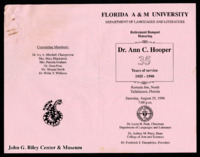
A program for a retirement banquet honoring Ann C. Hooper, professor in the FAMU Department of Languages and Literature










